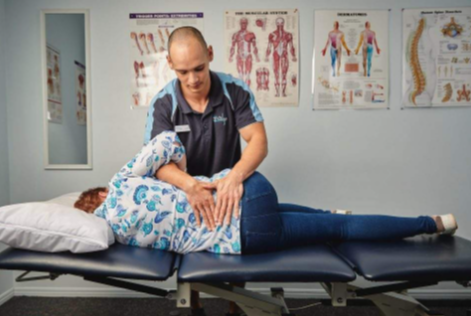Navigating Post-Surgery Rehabilitation: What Toronto Patients Need to Know About Physiotherapy

Undergoing surgery, whether elective or due to an unexpected injury or illness, can be a daunting experience. While the surgical procedure itself is a crucial step in the healing process, the journey towards full recovery often relies heavily on post-surgery rehabilitation. For patients in Toronto, physiotherapy plays a vital role in this rehabilitation process, helping individuals regain their strength, mobility, and overall quality of life. In this article, we’ll explore what Toronto patients need to know about physiotherapy in Toronto and its importance in navigating the post-surgery recovery process.
The Importance of Post-Surgery Rehabilitation After a surgical procedure, the body undergoes significant stress and trauma, both physically and mentally. Proper rehabilitation is essential to facilitate healing, restore function, and prevent potential complications or setbacks. Without adequate post-surgery rehabilitation, patients may experience prolonged recovery times, increased risk of re-injury, and a diminished overall quality of life.
The Role of Physiotherapy in Post-Surgery Rehabilitation Physiotherapy in Toronto is a crucial component of post-surgery rehabilitation, providing patients with personalized treatment plans tailored to their specific needs and surgical procedures. Physiotherapists are highly trained healthcare professionals who specialize in assessing and treating physical impairments, movement disorders, and functional limitations.
Read more Synergistic Support: Integrating Supplements for Brain Health and Heart Function
During the post-surgery rehabilitation process, physiotherapists work closely with patients to achieve the following goals:
- Pain Management: Physiotherapists employ various techniques, such as exercise therapy, manual therapy, and modalities like ultrasound or electrical stimulation, to help alleviate post-surgical pain and discomfort.
- Range of Motion and Flexibility: Surgery can often result in limited range of motion and decreased flexibility due to swelling, immobilization, or muscle tightness. Physiotherapists design targeted stretching and exercise programs to gradually restore mobility and prevent long-term limitations.
- Strength and Endurance: Post-surgery, patients may experience muscle weakness and decreased endurance due to inactivity or the surgical procedure itself. Physiotherapists prescribe progressive resistance training and cardiovascular exercises to rebuild strength and improve overall physical function.
- Balance and Coordination: Certain surgical procedures, such as those involving the lower extremities or neurological conditions, can impact balance and coordination. Physiotherapists provide specific exercises and techniques to help patients regain their stability and confidence in movement.
- Education and Home Exercise Programs: Physiotherapists empower patients by providing education on proper body mechanics, activity modifications, and home exercise programs to facilitate continued progress and self-management outside of the clinical setting.
Choosing the Right Physiotherapist in Toronto With a vast array of physiotherapy clinics and practitioners in Toronto, it’s essential for patients to carefully select a physiotherapist who aligns with their specific needs and goals. Here are some factors to consider:
- Specialization: Some physiotherapists may specialize in particular areas, such as orthopedics, sports injuries, or neurological conditions. Patients should seek out practitioners with expertise in their specific area of need.
- Experience: Look for physiotherapists with extensive experience in post-surgery rehabilitation, as they will have a deeper understanding of the unique challenges and requirements involved.
- Clinic Facilities: Evaluate the clinic’s facilities and equipment to ensure they have the necessary resources to support your rehabilitation journey, such as exercise equipment, modalities, and private treatment rooms.
- Rapport and Communication: A strong rapport and open communication between the patient and physiotherapist are crucial for a successful rehabilitation process. Look for a practitioner who actively listens, explains treatment plans clearly, and fosters a supportive and collaborative environment.
- Reputation and Reviews: Research the physiotherapist’s and clinic’s reputation by reading online reviews, seeking recommendations from healthcare professionals or trusted sources, and inquiring about their credentials and certifications.
Integrating Physiotherapy into Your Recovery Plan For Toronto patients undergoing post-surgery rehabilitation, it’s essential to integrate physiotherapy into their overall recovery plan from the outset. This may involve:
- Discussing physiotherapy with your surgeon: Prior to your surgery, discuss the importance of physiotherapy with your surgeon and inquire about their recommended timeline for initiating post-surgery rehabilitation.
- Obtaining a referral: In some cases, a referral from your surgeon or primary care physician may be required to access physiotherapy services. This referral can also provide valuable information to the physiotherapist regarding your surgical procedure and specific needs.
- Starting physiotherapy early: Many healthcare professionals recommend starting physiotherapy as soon as possible after surgery, as early intervention can promote faster healing, reduce post-surgical complications, and facilitate a smoother recovery process.
- Committing to the rehabilitation process: Post-surgery rehabilitation can be a challenging and time-consuming process. It’s crucial for patients to remain committed and actively participate in their physiotherapy sessions and prescribed home exercises for optimal results.
The Road to Recovery with Physiotherapy in Toronto Navigating the post-surgery recovery process can be a challenging journey, but with the guidance and support of experienced physiotherapists in Toronto, patients can regain their strength, mobility, and overall quality of life. By choosing the right physiotherapist, integrating physiotherapy into their recovery plan, and committing to the rehabilitation process, Toronto patients can maximize their chances of a successful and efficient recovery after surgery.
Remember, physiotherapy in Toronto is not just about physical rehabilitation; it’s about empowering patients to take an active role in their healing and regaining their independence. With the right approach and dedication, post-surgery rehabilitation can be a transformative experience, leading to improved physical function, reduced pain, and a renewed sense of confidence in one’s abilities.







